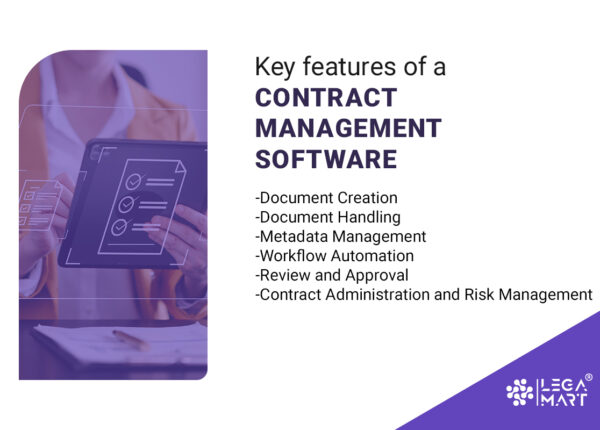Electra Japonas, host of a podcast, on ‘The Optimised Lawyer,’ collaborates with Ciaran McGonagle, Assistant General Counsel at ISDA, to explore the intricate realm of smart contracts, standardization, and the future trajectory of contractual agreements. Together, they dissect the crucial role played by the International Swaps and Derivatives Association (ISDA) in standardizing documents, particularly contracts, to streamline negotiations and bolster efficiency within legal teams, thereby fostering smoother transactions. In the context of Legal Tech & Industry Innovation and Business & Legal Strategy, they dissect the crucial role played by the International Swaps and Derivatives Association (ISDA) in standardizing documents—particularly contracts—to streamline negotiations and bolster efficiency within legal teams, thereby fostering smoother transactions.
Furthermore, the podcast underscores the profound significance of contracts in the global economic fabric, highlighting how without them, the functioning of our economy would be severely hampered. Drawing parallels with open source standards, the discussion emphasizes the importance of uniformity in contract execution. Additionally, it underscores the pivotal role of standardization in unlocking the full potential of cutting-edge technologies such as smart contracts, AI, and blockchain. By providing a structured foundation for digitization and facilitating the effective deployment of AI technologies, standardization emerges as a critical enabler for driving digital transformation and automation in contract management and beyond.
Quick Guide to Claim Management in International Contracts
Introduction
In today’s globalized business landscape, companies frequently encounter contracts that span multiple legal jurisdictions, presenting complex challenges in international contract management. This intricate process demands legal expertise, cultural sensitivity, and strong communication skills as businesses contend with diverse legal and regulatory frameworks, language barriers, and cultural disparities. The inherent complexity introduces unique risks, which highlights the importance of global contract management for businesses operating on an international scale. This practice aids in risk mitigation, ensures compliance with global laws and regulations, and facilitates effective communication among stakeholders across borders.
Contract management is extremely important for both corporate legal teams and the overall business. It involves everything from creating and negotiating agreements to keeping an eye on them and making sure they stay up to date. By implementing efficient contract management practices, in-house legal teams can significantly contribute to driving business growth by mitigating legal, compliance, and financial risks, as well as fortifying commercial partnerships. This detailed guide is designed to help legal managers and Chief Legal Officers (CLOs) understand the strategies and insights needed to successfully handle the complexities of contract management, enabling them to guide their organizations through the challenging world of international contracts with confidence.
At LegaMart, we are committed to bridging the gap between individuals, businesses, and qualified legal professionals across jurisdictions. Whether navigating cross-border legal challenges, seeking specialized legal advice, or managing international transactions, our platform empowers users with seamless access to a global network of vetted lawyers. By combining legal expertise with innovative technology, LegaMart simplifies complex legal processes and supports clients in making informed, strategic decisions.
What is Contract Management?
Contracts serve as the backbone of business relationships, providing guidance and protection for agreements between parties. Contract management oversees these agreements from start to finish, ensuring compliance, minimizing risks, and maximizing value. This involves drafting contracts, negotiating terms, tracking deadlines, monitoring performance, and resolving disputes if they arise, all aimed at maintaining the integrity of the agreement.
To effectively manage contracts, in-house legal teams must adopt a systematic approach that involves clear communication with all stakeholders throughout the contract lifecycle. Transparent processes and technology tools like contract management software help streamline operations and boost efficiency. Keeping accurate records of contractual documents is crucial, ensuring that both parties have access to the latest versions and facilitating management of any modifications made during the agreement. Moreover, contract management plays a pivotal role in risk mitigation by identifying potential pitfalls early on, allowing legal teams to address clauses related to indemnification provisions, termination rights, and confidentiality agreements.
What is Global Contract Management?

Global contract management involves overseeing contracts on an international scale to accommodate the interconnected nature of modern business operations including midsized enterprises. This encompasses ensuring compliance with various international laws, regulations, and cultural norms as businesses engage in transactions and partnerships across borders. A key component is drafting comprehensive contracts that delineate the rights, obligations, and responsibilities of all parties involved, addressing potential cross-border disputes and issues.
Risk mitigation is another vital aspect of global contract management, necessitating a thorough understanding of potential risks associated with cross-border transactions. Legal managers and Chief Legal Officers must navigate factors such as currency fluctuations, political instability, legal complexities, and cultural disparities to mitigate risks effectively. Additionally, establishing clear communication channels among all stakeholders is essential for seamless collaboration throughout the contract lifecycle. Furthermore, leveraging technology, such as digital tools like contract management software, and platforms, facilitates remote collaboration across time zones and enhances the efficiency of contract processes in the global context.
Why Uncertain Times Require Careful Contract Drafting
In a podcast, on ‘The Optimised Lawyer,’ the host Electra Japonas recognizes how the world is knit together through a web of contracts and as such, we would not really be having an economy had it not been for contracts. therefore, in an era of increasing globalization and cross-border commerce, having well-written contracts is very important. Even small and mid-size enterprises engage in international transactions, utilize foreign resources, or participate in global investments. This necessitates legal teams to exhibit adaptability and draft a range of contracts tailored to the requirements of both local and international clients. When executed effectively, contracts can delineate the responsibilities of each party and preempt conflicts.
Moreover, In-house legal teams need to stay informed about global economic shifts to determine the allocation of responsibility for unexpected inflation while negotiating contracts involving cross-border transactions. This is because unexpected events such as economic instability, both domestically and internationally, can lead to adverse effects on the economy, driving up inflation rates and raising the costs of goods and services. Although long-term contracts typically consider inflation, they may become less profitable as inflation rates reach historic highs. Therefore, to address unforeseen inflation, in-house counsel should regularly review contracts, identifying any clauses that may accommodate adjustments for inflation.
What Advantages Does Global Contract Management offer to Global Mid-Size enterprises?
Global Contract Management presents a range of benefits for businesses navigating the international market. These advantages encompass the following: –
Enhanced risk management:
Global contract management allows businesses to identify and mitigate risks associated with international contracts more effectively by providing a centralized view of all contractual agreements. This enables proactive monitoring of compliance, tracking of important milestones, and addressing potential issues before they escalate.
Better communication and collaboration:
With a centralized platform for storing and accessing contract-related information, legal teams from different locations can easily collaborate on drafting agreements, negotiating terms, and monitoring performance, fostering better communication and collaboration among stakeholders involved in international contracts.
Improved efficiency and effectiveness:
Centralizing contract management processes enables streamlined operations, reduces duplication of efforts, and ensures consistent adherence to contractual obligations across different countries and regions.
Greater visibility into contractual data and analytics:
Global contract management provides in-house legal teams with comprehensive reports on key metrics such as contract value, renewal rates, supplier performance, and compliance levels across their entire global network. This valuable insight helps businesses make informed decisions regarding future contract negotiations or strategic partnerships.
Challenges in International Contract Management

Navigating international contract management presents numerous challenges. These contracts can significantly impact finances, future prospects, and business direction. However, ensuring that every aspect of a contract is adequately covered can be daunting, particularly where various challenges hinder understanding. Some of these concerns may include:
Navigating Legal and Regulatory Frameworks
Navigating legal and regulatory frameworks across borders presents a multifaceted challenge for businesses, as each jurisdiction operates under its own set of laws and regulations. These variations encompass diverse aspects, including regulatory requirements and contract enforcement procedures. For instance, contracts governing transactions in different countries may encounter distinct legal landscapes, influencing everything from dispute resolution to the very legality of contractual terms. Understanding these differences is crucial for ensuring compliance and mitigating risks associated with international contracts.
To effectively navigate these complexities, businesses must first comprehend the nuances of the legal systems involved, focusing on key areas such as contract law principles, regulatory environments, and cultural considerations. For instance, common law and civil law jurisdictions may have starkly different approaches to contract interpretation and enforcement. Additionally, incorporating a well-defined choice of law and jurisdiction clause in international contracts is paramount. This clause dictates which jurisdiction’s laws will govern the contract and where disputes will be resolved, and this will highlight the importance of selecting a neutral jurisdiction with a robust legal framework. Leveraging the expertise of legal teams that are familiar with the specific jurisdictions involved can provide invaluable guidance, ensuring compliance and minimizing legal risks in cross-border transactions.
Addressing Cultural Differences
Cultural differences can significantly impact international business transactions, affecting communication, negotiation, and contract drafting. These variations in language, customs, values, and attitudes may lead to misunderstandings, conflicts, and lost opportunities between business partners. For example, differences in communication styles, such as direct versus indirect communication, can affect how contract terms are interpreted and discussed. Additionally, cultural attitudes toward hierarchy and decision-making influence negotiation dynamics, with some cultures emphasizing consensus while others rely on hierarchical structures.
Understanding and navigating these cultural differences is essential for successful contract management across regions. Strategies such as intercultural communication training, involving individuals familiar with both cultures, and using clear language in contracts can help mitigate misunderstandings. Recognizing negotiation pace preferences, whether fast or slow, and adapting negotiation strategies accordingly is also crucial. Moreover, building strong relationships with local partners, investing in cultural education for employees, and hiring local staff with cultural expertise can further facilitate effective communication and collaboration in cross-cultural business interactions.
Overcoming Language Barriers
To overcome language barriers in contract management, it is crucial to address potential misunderstandings and disputes that may arise, which could result in missed business opportunities and damage to reputation. Often, individuals may struggle to comprehend certain details within an agreement, mistakenly assuming their significance, leading to later repercussions such as litigation, stress, and costly issues. Some may believe they grasp the contract entirely, unaware that certain terms were misinterpreted.
Strategies for Overcoming Challenges
Introducing strategies for overcoming challenges in contract management, various approaches can be employed to navigate complexities effectively and ensure successful agreements:
- Leveraging Legal Expertise: Seeking legal counsel from professionals well-versed in the legal and regulatory landscapes of relevant countries is crucial. These experts can guide companies through the intricacies of international contracts, ensuring adherence to local laws and mitigating legal risks effectively.
- Promoting Cultural Awareness: Prioritize cultural sensitivity when engaging in contract negotiations with international counterparts. Understanding cultural norms and values facilitates smoother interactions and strengthens business relationships.
- Emphasizing Effective Communication: Facilitate clear and comprehensive communication among all parties involved in contract negotiations. Utilizing professional legal translation services ensures accurate transmission of terms and conditions, minimizing the risk of misunderstandings.
- Engaging Professional Legal Translation Services: Utilize professional legal translation services staffed with translators skilled in both legal terminology and languages to ensure precise communication in international contract management.
How Standardizing Contracts Drives Technological Advancements in Contract Management
Ciaran McGonagle, Assistant General Counsel at ISDA, stated that we possess powerful technological tools like smart contracts, AI, and blockchain, however, these tools cannot realize their maximum potential without standardization; as such, standardization forms the bedrock that allows us to digitize and deploy AI more efficiently.
Contract standardization is already making waves worldwide. Generally, it establishes a set of common elements that form the backbone of automated and data-driven contract processes. For example, picture a scenario where companies can bypass the demanding negotiations of contracts and immediately seize new opportunities. This becomes feasible when widely used agreements adopt a universal language that lawyers universally recognize and trust.
For example, Contract Lifecycle Management (CLM) software plays a crucial role in ensuring data integrity and documenting analytical processes throughout the contract lifecycle. Contracts can be categorized based on their type, and clauses can be standardized to optimize outcomes, providing clear definitions and classifications. Besides, common contract types can also be templates for widespread use. With structured language understood by, for example, Natural Language Processing (NLP) technology in CLM systems, legal teams can swiftly create contracts.
Optimizing Contract Management Through Technology
Enhancing contract management through technological solutions offers unprecedented opportunities for efficiency and effectiveness. By leveraging innovative tools and systems, enterprises can streamline processes and optimize their contract management workflows in many ways;
Use contract management software
To make your job as an in-house legal team easier, you can use contract management software. This type of software helps you handle contracts digitally by creating, storing, organizing, tracking, and analyzing them. It automates tasks like creating, approving, renewing, and ending contracts, and it can also send you alerts, reminders, and reports. Plus, it can connect with other software you use, like CRM or accounting programs, to share information easily.
A contract management solution ought to seamlessly integrate with the existing tools used by in-house counsel, such as Gmail, Outlook, and Word. Additional efficiencies can be achieved through integrations with other widely used platforms like Slack, Teams, SharePoint, Salesforce, and similar applications.
Key features of a contract management software

Contract management software offers several key features that enhance the efficiency and effectiveness of contract management processes. Some of these features are; –
- Document Creation: This feature allows attorneys and business staff to generate contracts from templates seamlessly. Ideally, users should be able to select from menu options and fill in form fields to create contracts swiftly. Additionally, these templates should include user instructions and control required information or clauses. The software should also enable users to attach related documents and correspondence within the contract file or folder, ensuring all relevant materials are easily accessible.
- Document Handling: This is where the system should support various document formats such as word processing files, spreadsheets, images, and emails. This ensures that contracts and their revisions are stored and retained within the system for future reference.
- Metadata Management: Metadata management is essential, with the software automatically extracting key information like party names, addresses, contact details, and important dates from user-created templates. This metadata is invaluable for contract administration, reporting, and risk mitigation purposes.
- Workflow Automation: Workflow automation streamlines tasks like contract review and approval by automating communication flow and checklist tasks, while also systematically defining roles and responsibilities for efficient workflow management.
- Review and Approval: Review and approval functionalities enable quick assessment of agreements by attorneys and business personnel, facilitating smooth approval processes and comparison of new contracts to templates and revisions by version for thorough review.
- Contract Administration and Risk Management: The software should have reminder functionalities to alert assigned personnel when contracts are nearing renewal or approaching other critical dates. It should also flag risk indicators such as high-value transactions or agreements involving parties on a watch list.
2. Employ electronic signatures
To boost effectiveness as a contract manager, utilizing electronic signatures is a valuable technological approach. Electronic signatures provide digital authentication for signing contracts electronically, eliminating the need for paper documents and streamlining the process. They offer benefits such as faster contract completion, reduced errors and costs, and improved security and compliance.
Here are the main benefits of adopting contract management software with eSignature capabilities:
- Centralized platform: This software allows private markets firms to manage contracts from start to finish in one location. For instance, the legal team can send contracts for signatures directly from the contract automation platform, streamlining the process without switching between platforms.
- Expedited signatures: Contract management software with eSignature integration accelerates the signing process thereby eliminating delays.
- Enhanced transparency: It provides real-time contract tracking, allowing legal teams to monitor ongoing negotiations easily. Users can track the status of documents, from negotiation to execution, and receive final copies automatically once contracts are signed.
- Automated storage: Executed contracts are automatically stored in a centralized digital repository by the Contract Automation platform. This eliminates the need for manual uploading and ensures all contracts are securely stored and easily accessible.
- Improved relationships: Incorporating electronic signatures into contract management software enhances the contracting experience for all parties involved.
3. Utilize Artificial Intelligence (AI)
Contract management artificial intelligence (AI) empowers users to select data points and establish rules based on contract types. This intelligent feature consolidates data into easily digestible formats, enabling users to set rules regarding contract locations, dates, monetary values, personally identifiable information (PII), payment card information (PCI), and other essential subsets of contract data. Once configured, these processes are automated by contract intelligence, reducing time wasted on tedious data import analysis and allowing more focus on making data-driven decisions.
AI-powered contract management software plays a vital role in data extraction functionality, particularly for organizations managing legacy contracts. Data extraction tools streamline the process of importing legacy agreements into contract management software, eliminating the need for manual data entry. This systematic extraction of data ensures that clauses, terms, and other important information are accurately captured, providing teams with enhanced visibility and ease of use to search, compare, and classify contracts and legal risks. Natural language processing and fuzzy logic matching are integral components of these processes, enabling efficient data extraction for legal teams.
Additionally, auto-redline functionality offered by AI-powered contract management software helps organizations enhance contract preparation. This tool automatically identifies clauses in important contracts that can be replaced with preferred clauses, facilitating intelligent drafting and instilling confidence in the contract review process. This functionality is applicable to Microsoft Word documents as well, further streamlining the contract management process.
4. Utilize Cloud Storage and Backup
An effective method to enhance legal work as legal teams is by leveraging cloud storage and backup solutions. Cloud storage services enable legal teams to store their contracts and related documents securely online, eliminating the need for local storage on their computer or hard drive. With cloud storage, legal teams gain advantages such as accessibility, scalability, security, and collaboration. Furthermore, legal teams can access their contracts from any location, at any time, using any internet-enabled device. Moreover, legal teams have the flexibility to adjust their storage capacity based on their requirements and safeguard their contracts from potential loss, theft, or damage. Cloud storage also facilitates seamless collaboration by allowing legal teams to share contracts with other parties and collaborate on editing them in real-time.
Contract Lifecycle Management for In-house Legal Teams

Contract Lifecycle Management (CLM) is all about handling contracts from their creation to their end, aiming to save costs and boost efficiency as much as possible. It involves various stages, including creating templates, drafting contracts, reviewing them, getting approvals, executing them, ensuring they perform as intended, and finally, managing their expiration. Each step in this process needs careful attention to ensure everything goes smoothly and meets regulatory requirements.
In contemporary legal practice, there is a growing expectation among clients for in-house legal teams to leverage contract lifecycle management tools. These tools empower firms to craft comprehensive templates, conduct thorough contract reviews, and expedite the delivery of agreed-upon contract terms with greater efficiency compared to enterprises operating without such technology. By embracing CLM solutions, in-house legal teams can not only enhance their operational efficiency but also meet evolving client demands effectively in an increasingly competitive landscape.
Contract Lifecycle Management Software
Contract Lifecycle Management (CLM) software provides invaluable assistance to in-house counsel, particularly during times of global disruption, as their roles become more multifaceted in our increasingly interconnected world. With legal teams facing time constraints, managing the intricacies of numerous contracts can be daunting. CLM software streamlines this process, offering tailored support to efficiently navigate crises.
CLM tools streamline and optimize the contracting process, making it more transparent and efficient for all parties involved. By providing clear insights into rights, obligations, and potential changes, CLM software enables quick corrections and negotiations. In-house counsel can save valuable time by automating contract approval workflows, utilizing reusable templates, and coordinating approvals and executions seamlessly.
Moreover, CLM platforms facilitate the templatization of contracts drafted by other departments like Sales and HR, reducing the need for direct involvement from in-house lawyers. This allows legal teams to focus on crisis-impacted projects while ensuring that every contract aligns with the company’s interests, even during emergencies. Additionally, CLM software aids attorneys in thoroughly assessing current and potential customers for compliance with OFAC regulations, mitigating risks associated with conducting business with foreign entities.
During global events or disasters, CLM software enables swift action by extracting contracts with affected clauses within seconds from a vast library of active agreements. This feature is particularly beneficial for smaller legal teams managing a high volume of contracts, allowing them to protect the company’s interests promptly. Furthermore, CLM software helps safeguard profitability by implementing contractual and process safeguards against minor errors that could have significant downstream impacts, especially in uncertain times.
The Future of Contracts Management for Global Mid-Sized Enterprises
Managing contracts across diverse legal jurisdictions presents complexities but is achievable with the right strategies. Both small and mid-size enterprises can navigate this terrain by comprehending legal system variations, meticulously drafting contracts, ensuring regulatory compliance, adeptly resolving disputes, and proactively mitigating risks. Embracing technology and fostering cultural understanding further bolsters this capacity.
As global business expands, mastering the management of multi-jurisdictional contracts emerges as a critical skill for effective business leadership. For example, as globalization continues to reshape the business landscape, mid-size enterprises face the challenge of operating across multiple legal jurisdictions. One of the primary complexities is understanding and navigating the diverse legal frameworks that exist across different countries. Each jurisdiction may have its own set of laws, regulations, and contractual requirements, making it crucial for businesses to have a comprehensive understanding of these factors when drafting and negotiating contracts. This necessitates continuous learning, adaptability, and a strategic approach to contract management.
Furthermore, businesses must also stay abreast of technological advancements that can streamline contract management processes. Digital tools and platforms can facilitate collaboration, document management, and communication across borders, enabling more efficient and transparent contract management practices. Embracing technology not only enhances operational efficiency but also improves compliance and risk management in an increasingly complex global business environment.
Overall, the future of contracts in a globalized world necessitates a multidimensional approach that encompasses legal expertise, cultural awareness, and technological innovation. By embracing these elements and continuously evolving their contract management strategies, businesses can effectively navigate the challenges of operating across multiple legal jurisdictions while seizing opportunities for growth and expansion in the global marketplace.
Conclusion
In today’s interconnected world, managing international contracts has become essential for businesses expanding across borders. With companies seeking to effectively manage contracts with foreign partners, the significance of international contract management is underscored.
Global contract management offers a multitude of benefits, including streamlined processes, enhanced transparency, improved compliance, and reduced risks. By implementing tailored contract management systems, organizations can mitigate potential pitfalls and maximize success in international agreements. However, it’s crucial to acknowledge the challenges associated with global contract management, such as cultural differences, language barriers and varying legal frameworks.
To navigate these challenges and capitalize on the benefits of global contract management, organizations should invest in comprehensive solutions such as cloud-based contract management platforms or seek assistance from professionals specializing in international contracting. By leveraging technology-driven tools and expertise in managing complex contractual landscapes worldwide, businesses can optimize efficiency and minimize risks associated with international engagements.




